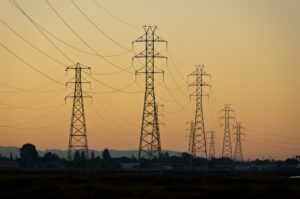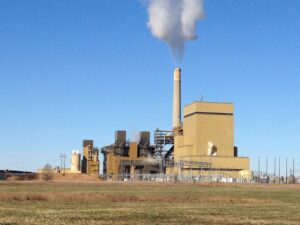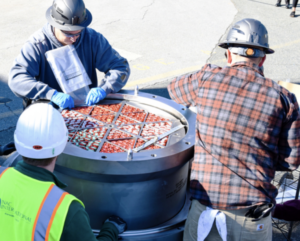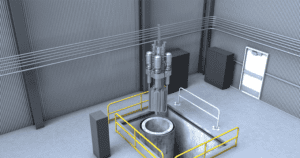The U.S. should ensure that Canada does not build a permanent nuclear waste repository in the Great Lakes Basin as proposed, a U.S. Senate resolution introduced last week proclaims.
The resolution introduced by Sen. Carl Levin (D-Mich.) and co-sponsored by Sens. Debbie Stabenow (D-Mich.), Mark Kirk (R-Ill.), and Tammy Baldwin (D-Wis.) on Sept. 18 calls on the Obama administration to oppose Ontario Power Generation’s (OPG’s) proposal to build a permanent nuclear waste repository less than a mile from Lake Huron in Kincardine, Ontario, because stored nuclear waste could harm the health and economy of U.S. citizens, they claim.
The lawmakers note that the Great Lakes Basin provides freshwater to 40 million people in the Great Lakes states and Canadian provinces. But nuclear waste is “highly toxic and can take tens of thousands of years to decompose to safe levels,” the resolution states.
Canada had expressed concern with locating a permanent nuclear waste repository within the shared water basin during the 1980s, when the Department of Energy was studying potential sites for a U.S. permanent nuclear waste repository, the resolution states.
OPG’s proposed Deep Geologic Repository (DGR) seeks to put waste about 680 meters below the Bruce nuclear site in low-permeability limestone rock, underneath a 200-meter-thick layer of low-permeability shale.
The company has completed a four-year program of scientific investigation, analyses, and studies to assess the ability of the DGR to safely isolate and contain low- and intermediate-level nuclear waste. It concludes in a 2011-submitted environmental impact statement that the DGR is “not likely to result in significant residual adverse effects to human health or the environment, including Lake Huron and the Great Lakes.”
The resolution was introduced as the Canadian Nuclear Safety Commission resumed two-week-long joint review panel hearings on the proposed repository. The regulatory body’s next steps entail preparing an environment assessment report, which will be submitted for approval by the federal minister of the environment.
If the minister approves the project, the joint review panel could grant OPG a license to prepare the site and begin construction of the repository. OPG has yet to apply for a license to operate the repository, however.
—Sonal Patel, associate editor (@POWERmagazine, @sonalcpatel)










